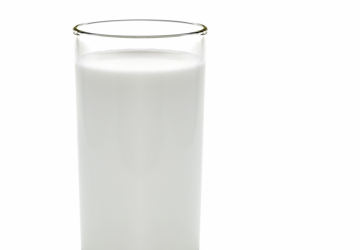 Tomorrow, the New York City Department of Health and Mental Hygiene will hear public comments on the portion-size soda prohibition proposed by Mayor Bloomberg. Bloomberg’s hand-picked bureaucrats will then rule on whether the ban should go forward. Considering that they’ve already discussed moving past soda into popcorn and milk-based drinks, it could be an uphill battle.
Tomorrow, the New York City Department of Health and Mental Hygiene will hear public comments on the portion-size soda prohibition proposed by Mayor Bloomberg. Bloomberg’s hand-picked bureaucrats will then rule on whether the ban should go forward. Considering that they’ve already discussed moving past soda into popcorn and milk-based drinks, it could be an uphill battle.
In the hopes of appealing to some latent common sense in the board’s members, opponents are taking to the newspapers in the hopes of rallying resistance. In The Wall Street Journal, Seth Goldman, the co-founder of Honest Tea — the organic sweet tea line reportedly favored by President Obama — questions why his company’s 500-mL (16.9-oz.) bottles are in Bloomberg’s line of fire:
I challenge the mayor and the New York City Board of Health to seriously consider the impediments that entrepreneurs already face in our efforts to offer lower-calorie drinks. Starting a business and building a challenger brand with modest resources is already a daunting task. The proposed ban would create additional barriers to beverage innovation.
For what it’s worth, Goldman reports that a 16.9-ounce bottle of Honey Green Tea sold by the company packs 70 calories, less than four percent of the typical adult recommendation of 2,000 calories per day. We’re not surprised that such a low calorie contribution still makes the hit list. Sugar-sweetened soft drinks amount to only 7 percent of Americans’ total calorie intake, so ban-happy bureaucrats need to rope in as many drinks as possible.
Additionally, Goldman explains that businesses cannot predict the capricious behavior of the regulatory state and respond as they do to changing consumer preferences:
And what if next year, Cambridge, Mass., comes up with a ban on 15.5-ounce containers? As soon as government starts getting between us and the consumer, we quickly find ourselves considering scenarios that are not based on market realities or consumer needs.
And we’d add that society stands to lose a lot from these costly, restrictive regulations. Researchers from Cornell University predicted that between the rebellion against government intrusion and the inevitable failure of the regulation to reduce obesity the soda ban will “poison the water” for better-thought-out public health initiatives.
We’re not holding our breath for those better-thought-out initiatives. The “public health” regulatory community is already looking to alcoholic beverage regulation as a model for controlling food. (Fancy a run to the “SBC” store?) Until the regulators and would-be diet commissars start thinking outside the takeaway box, we expect anti-obesity policy to continue to fail.




